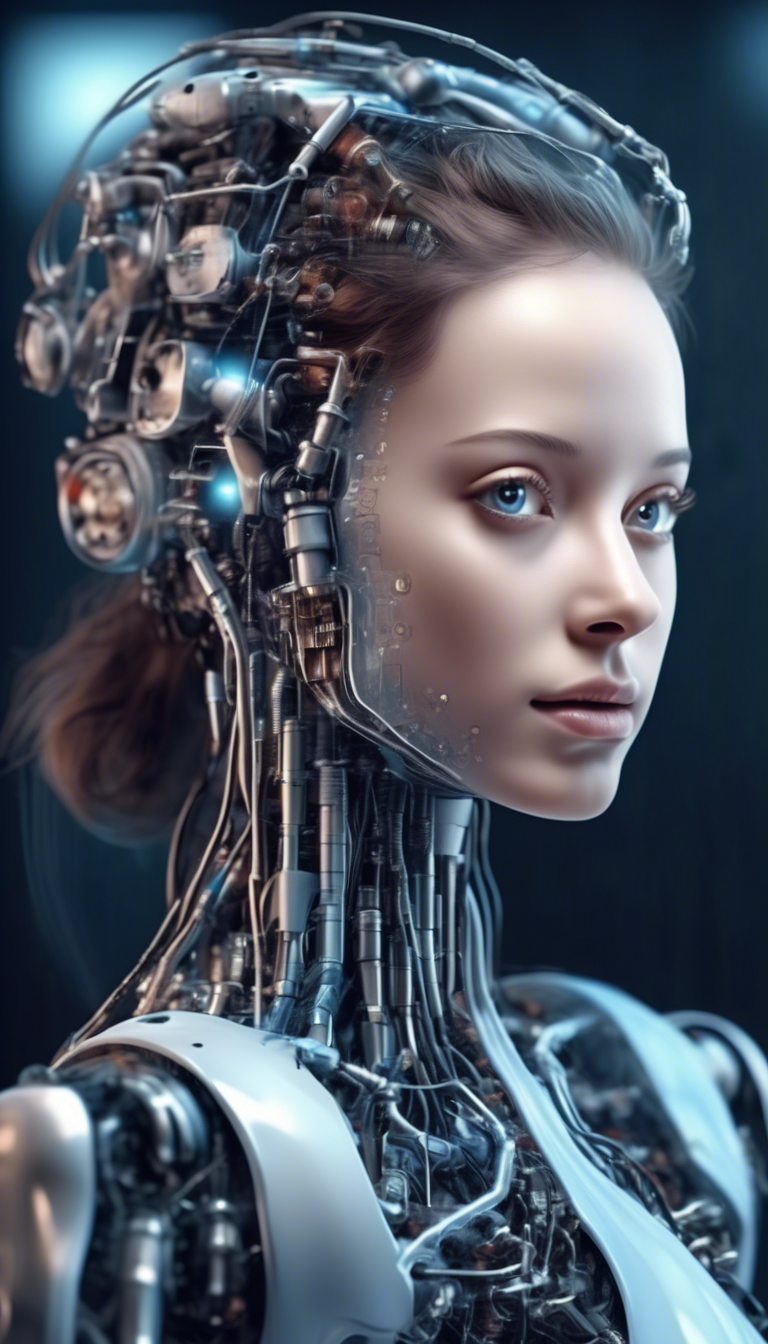The Impact of AI Artificial Intelligence on Everyday Life
AI artificial intelligence is transforming our world in countless ways, touching nearly every aspect of our daily lives. From the moment you wake up to the time you go to bed, you likely interact with some form of AI. Understanding its impact can help you appreciate the conveniences it brings and also consider the challenges we may face ahead.
One of the most noticeable places AI influences our lives is in smart home devices. Products like smart speakers, thermostats, and security systems use AI algorithms to learn your habits and preferences. For instance:
- Smart speakers can play your favorite music or answer your questions.
- Smart thermostats automatically adjust temperatures to create a comfortable environment based on your routine.
- Home security systems can alert you about unusual activities, providing peace of mind.
In addition to smart homes, AI artificial intelligence significantly shapes the way we communicate. Messaging apps now employ AI to suggest replies, making conversations smoother and faster. This technology doesn’t just streamline interactions; it can also help break language barriers. Real-time translation features allow you to converse with people across the globe effortlessly.
Moreover, when it comes to entertainment, AI plays a pivotal role in content recommendation. Have you ever wondered how Netflix knows exactly what you might want to watch next? Its AI algorithms analyze your viewing habits and suggest titles based on what others with similar tastes enjoy. This personalized experience not only saves you time but keeps you engaged with the platform.
The workplace also sees a remarkable transformation thanks to AI. Routine tasks such as scheduling meetings, sending reminders, and even processing invoices can now be automated. This means you can focus on creative and complex aspects of your job, enhancing overall productivity. For instance:
Join our amazing AI and Automation Community
- AI chatbots can handle customer inquiries 24/7, improving response times.
- Data analysis tools powered by AI can provide insights you might have missed.
- Recruitment processes benefit from AI by filtering resumes and identifying the best candidates.
Healthcare is another field where AI artificial intelligence shines. Medical professionals are using AI algorithms to diagnose diseases more accurately and at earlier stages. Tools that analyze medical images or track patient data can alert doctors to potential health issues, leading to timely interventions. This not only improves the quality of care but can also save lives.
Transportation is undergoing a revolution with AI as well. Self-driving cars are no longer just a concept of the future; they are becoming a reality. These vehicles rely on AI to analyze their surroundings and make decisions in real-time. The potential benefits of this technology include:
- Reduced traffic accidents caused by human error.
- Increased efficiency in traffic flow, allowing for faster commutes.
- Greater accessibility for individuals unable to drive.
However, as with any revolutionary change, there are challenges associated with AI. Privacy concerns top the list as many AI applications rely on collecting vast amounts of personal data. It’s essential to stay informed about how your data is used and to advocate for responsible AI practices. Another concern is the potential for job displacement in fields heavily influenced by automation. While AI can enhance productivity, it’s crucial to ensure workers are trained and prepared for new roles in an AI-driven world.
Education is also an area poised for transformation through AI. Personalized learning experiences tailored to individual students’ needs can provide better engagement and understanding. AI-driven platforms can adapt to your learning pace, ensuring that you grasp concepts fully before moving on. This can create a more effective educational environment that caters to different learning styles.
Join our amazing AI and Automation Community
The impact of AI artificial intelligence on our everyday lives is profound and multifaceted. It enhances our homes, workplaces, health, and leisure activities while also posing challenges we must address. As this technology continues to evolve, staying informed and adaptable will help you navigate its benefits while minimizing its risks.
Future Trends in AI Artificial Intelligence and Their Implications
As we look to the future of AI artificial intelligence, several trends are emerging that promise to reshape industries and improve daily life. Understanding these trends is crucial, as they have profound implications for how we interact with technology and each other. Below, we explore some of the most significant future trends in AI and examine what they mean for businesses and consumers alike.
Improved Natural Language Processing (NLP)
Natural language processing is a key component of AI technology, allowing machines to understand and respond to human language in a meaningful way. Future advancements in NLP will enable even more accurate translations, context-based understanding, and dialogue systems that feel more human. Imagine discussing complex topics with an AI that not only understands your requests but can also provide nuanced answers tailored to your needs.
AI Ethics and Regulation
As AI artificial intelligence continues to grow, ethical considerations will come to the forefront. There is increasing recognition of the importance of making sure AI systems are fair, transparent, and accountable. Expect to see more dialogue around the need for regulations to guide the development and implementation of AI technologies.
- Privacy Protection: Safeguarding personal data and ensuring users’ privacy.
- Bias Mitigation: Creating strategies to minimize bias in AI algorithms.
- Accountability Standards: Defining who is responsible when AI makes a mistake.
AI in Healthcare
The healthcare sector stands to gain immensely from AI advancements. AI artificial intelligence can analyze vast amounts of medical data to assist in diagnosis, treatment planning, and even predicting patient outcomes. This trend will likely lead to more personalized medicine, where treatments are specifically tailored to an individual’s genetic make-up and lifestyle. Furthermore, AI-powered virtual assistants can help patients manage their health more effectively, reminding them to take medications or keeping track of appointments.
Join our amazing AI and Automation Community
Integration with the Internet of Things (IoT)
The combination of AI and IoT will lead to smarter homes and cities. Devices that communicate with each other can gather and analyze data to optimize everything from energy use to traffic management. Imagine your thermostat adjusting itself based on your habits or your fridge automatically reordering groceries when supplies run low. Such innovations will also extend to industries like agriculture, where AI can help monitor crop health and optimize resources.
AI-Powered Automation
Automation will continue to change the workforce dramatically. AI artificial intelligence can handle repetitive tasks more efficiently than humans, freeing up time for employees to focus on more creative, strategic work. This shift not only enhances productivity but can also lead to job displacement, making it essential for workers to adapt and acquire new skills.
- Reskilling: Learning new skills in areas like AI systems development.
- Collaboration: Working alongside AI tools to enhance productivity.
- Job Creation: New roles in AI ethics, maintenance, and oversight.
Sustainability through AI
AI artificial intelligence will play a crucial role in sustainability efforts. AI systems can analyze environmental data to find ways to reduce waste, lower carbon footprints, and conserve energy. Whether it’s optimizing supply chains or improving recycling processes, AI has the potential to be a game-changer in the quest for a more sustainable future.
Enhanced Customer Experiences
Businesses are quickly realizing that AI can transform customer interactions. From AI-driven chatbots that provide instant support to recommendation systems that offer personalized suggestions, the possibilities are endless. These tools can not only enhance customer satisfaction but also lower operational costs, making service delivery more efficient.
Join our amazing AI and Automation Community
To summarize, the future of AI artificial intelligence is filled with exciting opportunities and important challenges. As these trends unfold, staying informed and proactive will enable individuals and organizations to harness the full potential of AI. Whether improving healthcare, ensuring ethical standards, or enhancing our everyday lives, AI is set to revolutionize the world as we know it. Keeping an eye on these developments will be key to navigating the future successfully.
Conclusion
The integration of AI artificial intelligence into our daily lives is nothing short of transformative. From virtual assistants that simplify the way we manage tasks to personalized recommendations that enhance our shopping experiences, AI is reshaping how we interact with technology. Its ability to process vast amounts of data quickly and accurately allows us to enjoy services tailored specifically to our needs, making life more convenient and efficient.
As we look to the future, the trends in AI artificial intelligence are not only exciting but also hold significant implications for society. Advancements in machine learning and natural language processing continue to improve how we communicate with machines, paving the way for even smarter technologies. These innovations may lead to a new era where AI can predict our preferences with even greater accuracy and assist us in complex decision-making processes.
However, the rise of AI also brings essential considerations. As these technologies become deeply embedded in our lives, issues related to privacy, security, and ethical use must be addressed. It is crucial for developers, companies, and policymakers to work together to ensure that AI artificial intelligence enhances human wellbeing without compromising our fundamental rights.
Ultimately, as AI continues to evolve, it is vital for everyone to stay informed and engaged. By understanding the impact and implications of AI artificial intelligence, we can navigate this new landscape responsibly, ensuring that technology serves as a force for good, benefiting individuals and society as a whole.


